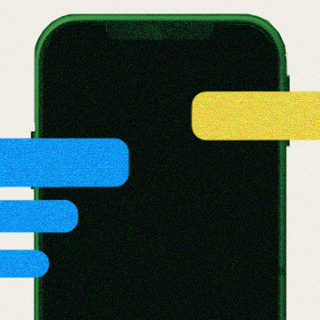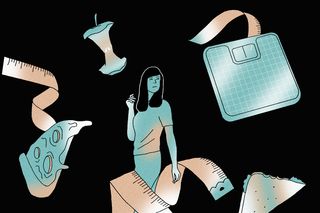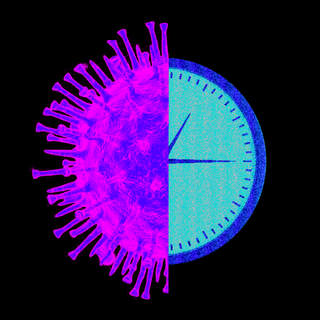
What It’s Like To Live With: Bulimia
“My eating disorder had started off as a coping mechanism; it still is, albeit a very unhealthy one.”

What It’s Like to Live With explores the stories of people who see and experience every day a little differently.
Please keep in mind the content of the article may cause emotional distress.
I’m 26 now. I developed bulimia when I was a teenager — between the ages of 13 to 14. Those days, I was constantly called fat by my peers, who bullied me too; even at home, there were a lot of comments about my weight. I was also struggling with depression around that time. So, there came a point when all of it started to get to me and I felt like I was losing control of my life. I felt worthless too. That’s when I started using food to punish myself — even though I was (and still am) someone who enjoyed eating.
I used to spend a lot of time alone at home. Whenever I would eat, I would relish my food for the first five minutes or so. Soon, loneliness, sadness, and guilt — coupled with the feeling of not being “good enough” — would take over me and I would start force-feeding myself. I felt full, but couldn’t stop. I ate till the food stopped tasting good and my stomach hurt. And then, I ate some more. I remember eating so fast that I could barely even breathe. It’s like I didn’t know how to stop myself.
My eating disorder didn’t impact my everyday life much — at least, socially. I didn’t have a lot of friends, to begin with, and my relationship with my parents wasn’t great either. My studies did get affected, though, as did my health. One day, I passed out in school and had to be hospitalized. The doctors couldn’t understand what had happened, and I didn’t know how to explain it to them. The post-binge purging, which brings up digestive acids from the stomach, had badly affected my teeth too. When I went to the dentist to get braces, I was told it wouldn’t be feasible because there was so much acid damage to my teeth. These incidents took place over a decade ago, but even today, my dad holds them over my head.
Meanwhile, these situations that my disordered eating was leading me to also made me reconsider my coping mechanisms, and I tried to get a better handle on my mental health. I wasn’t living in India, at the time. I was in the Gulf, and thankfully, we had a good school counselor, who was able to help me. Finally, around the time I was in the 11th and 12th grades, my bulimia came under control — but that was short-lived.
While I was pursuing my bachelor’s, my eating disorder came back. I began being really secretive about what — and, more importantly, how much — I was eating. Eventually, my hiding slowly distanced me from my roommates. But they were really great friends of mine and amazing people too, and one day, they just sat me down for an intervention — and I opened up to them. Soon after, I started seeing a therapist in college itself. To a great extent, I got really lucky with the educational institutions I found myself in; it’s rare for colleges here to have professional mental health support available.
Related on The Swaddle:
For People With Poor Impulse Control, Instant Food Delivery Apps Can Kickstart Disordered Eating
Recovery from bulimia has been a long process, nonetheless. Therapy did its part, of course, but getting out of toxic environments that triggered me has always been hugely helpful. When I switched schools, for instance, and landed at a place with a strong support system and lots of encouragement and appreciation, it built my sense of self-worth. I also realized that I felt less alone, then. And, gradually, I got better too.
But I’m always worried about relapsing. Sometimes, I realize I’m falling back into my disordered eating patterns unconsciously. I have to stay vigilant; the moment realization strikes, I get to working towards nipping it in the bud. That could mean stepping away from food immediately, or even spitting whatever’s in my mouth.
I don’t weigh myself too often either — some of my triggers happen to be associated with my weight. When I visit doctors for consultations, if they insist on checking my weight, I ask them not to disclose it to me. Some are empathetic and do cooperate, others don’t.
I recall being triggered while at a doctor’s office recently: He told me I had a tumor that would disappear if I managed to lose 20 kgs, and that he would prescribe me medicines towards that end. I ran. As soon as I was in the safe space of my house, I cried. Once I was a little composed, I scheduled a session with my therapist.
Of late, I’ve started being very open about my struggles with food. Since I work in the mental health field, I’ve been able to find supportive friends. My family members haven’t changed, unfortunately. Every time I see them, they make it a point to comment on my weight and start assessing whether I’m eating too much or too little.
Related on The Swaddle:
What It’s Like To Live With: An Undiagnosed Eating Disorder
To ensure I don’t fall into old patterns, I follow intuitive eating now — basically, rather than eating according to preset meal times, I try to listen to my body and honor its needs instead. When I’m staying with my family, though, this becomes a problem.
In India, food is more than sustenance — it’s an expression of love. So, if I skip a meal because I’m not hungry, they take it as a rejection of their love. It goes into the territory of emotional manipulation even, especially when my mother says things like, “Oh, I woke up at 6 a.m. and cooked this for you. Why won’t you eat?” Or my dad says, “If she’s not having dinner, then I won’t have it too.”
There’s actually a specific incident involving my sister that I remember. It was a few years ago when I was visiting my family. I’d eaten my breakfast around 8 a.m. When my sister sat down to have her breakfast, around 10 a.m., I was having a protein bar after having worked out. She saw me, and just said: “Maybe if you weren’t always eating, you wouldn’t be so fat, and then you wouldn’t be bulimic.”
It felt like a punch in the gut.
Since I dealt with bulimia at such a pivotal age in my life, the journey hasn’t become easy. I respond to stress by binging and then making myself throw up. Do you know the worst part? I genuinely feel calmer after puking. In fact, there was a point in my life when I tried to rationalize my disordered eating. I told myself that, maybe, if I just did it once or twice a month, and not every day, it wouldn’t be so bad and I would be able to relax a lot more. My eating disorder had started off as a coping mechanism; it still is, albeit a very unhealthy one. It takes a lot of willpower for me to talk myself out of it — every single time.
This interview has been condensed and edited for clarity. As told to Devrupa Rakshit by Tanisha.
Devrupa Rakshit is an Associate Editor at The Swaddle. She is a lawyer by education, a poet by accident, a painter by shaukh, and autistic by birth. You can find her on Instagram @devruparakshit.
Related


Vitamin D Supplements May Not Lower the Risk of Fractures, Finds New Study
